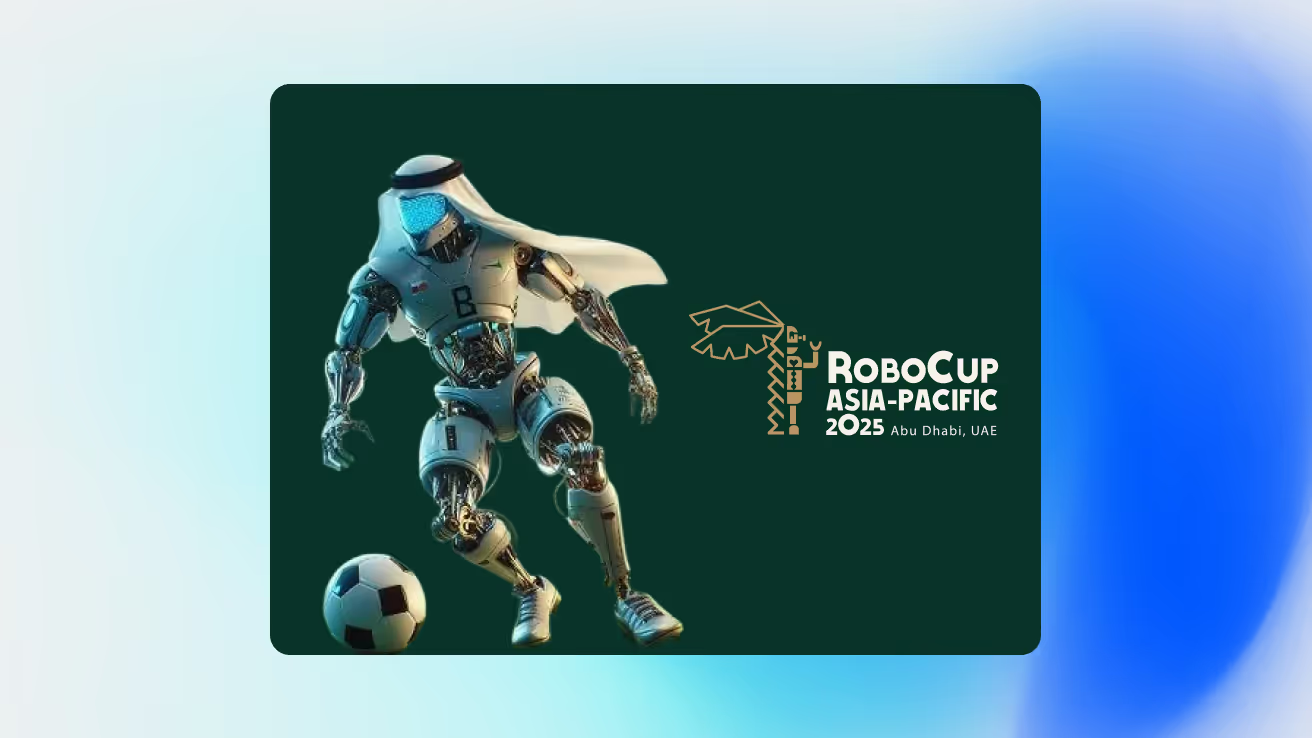Solutions
About Us

Abu Dhabi has firmly established itself as a rising powerhouse in the global robotics and artificial intelligence landscape. From November 10-15, 2025, the emirate hosted the 8th edition of RoboCup Asia-Pacific (RCAP 2025) at the Abu Dhabi National Exhibition Centre (ADNEC), bringing together over 700 innovators, researchers, students, and robotics enthusiasts from across the globe.
Organized by Khalifa University under the patronage of Sheikh Hamdan bin Mohammed bin Zayed Al Nahyan, Crown Prince of Abu Dhabi, this prestigious event showcased the UAE's commitment to becoming a global center for advanced technology and innovation.
The Competition Landscape
RCAP 2025 featured 34 distinct competitions across eight specialized leagues, each pushing the boundaries of what autonomous robots can accomplish. The leagues included:
This year's themes emphasized sustainability, energy-efficient robotics, and AI-driven sustainable models, reflecting the UAE's broader commitment to environmental responsibility alongside technological advancement.
Khalifa University's Historic Achievement
The event held special significance for Khalifa University, the host institution. Just months earlier, the university's KURA robotics team achieved a remarkable second-place finish globally in the Kid-Size Humanoid League at RoboCup 2024 in The Netherlands. This accomplishment was particularly impressive as it came during the university's first-ever participation in the international competition.
The success demonstrated not just technical excellence, but the rapid maturation of the UAE's robotics research capabilities. Khalifa University has invested heavily in robotics labs, AI research centers, and collaborative partnerships with global technology leaders, and RCAP 2025 provided a platform to showcase these investments to the world.
Why RoboCup Matters
RoboCup is far more than a robotics competition. Since its founding in 1997, RoboCup has served as a catalyst for robotics and AI research worldwide. The stated goal admittedly ambitious, is to develop a team of fully autonomous humanoid robots capable of winning a soccer match against the human FIFA World Cup champions by 2050.
While that goal remains decades away, the journey toward it drives innovation across multiple domains:
Technologies developed for RoboCup competitions frequently find applications in industrial automation, healthcare robotics, autonomous vehicles, and defense systems. The competition serves as a testbed for fundamental research that ripples across the entire robotics industry.
The UAE's Robotics Vision
Abu Dhabi's decision to host RCAP 2025 aligns perfectly with the UAE's broader strategic vision. The nation has made robotics and AI central pillars of its economic diversification strategy, investing billions in research institutions, technology parks, and startup ecosystems.
The UAE's National Strategy for Artificial Intelligence 2031 aims to position the country as a global leader in AI by the end of the decade. Robotics represents a critical application domain for AI, and events like RoboCup help accelerate both research and public awareness.
Beyond research, the UAE is rapidly deploying robots in practical applications. Dubai Police have experimented with robotic patrol officers. The healthcare sector is adopting surgical robots and automated pharmacy systems. Logistics companies are implementing warehouse automation. And construction projects increasingly rely on robotic systems for tasks ranging from welding to 3D printing of building components.
Inspiring the Next Generation
Perhaps most importantly, events like RCAP 2025 inspire young people to pursue careers in STEM fields. The RoboCupJunior competitions introduce students to robotics, programming, and engineering in a fun, competitive environment. Many of today's leading robotics researchers trace their passion back to early experiences with educational robotics competitions.
By bringing 700+ international participants to Abu Dhabi, the event also facilitates knowledge transfer and collaboration. Students and researchers from different countries share ideas, techniques, and approaches, accelerating innovation through cross-pollination of concepts.
Looking Ahead
As RCAP 2025 concluded, participants left with not just trophies and recognition, but with connections, insights, and inspiration that will fuel robotics innovation for years to come. For Abu Dhabi and the UAE, the event represented another milestone in the journey toward becoming a global technology leader.
The robotics revolution is accelerating, and the UAE is positioning itself not as a spectator, but as an active contributor and beneficiary of this transformation. Events like RoboCup Asia-Pacific 2025 aren't just competitions, they're investments in the future.
We're accepting 2 more partners for Q1 2026 deployment.
20% discount off standard pricing
Priority deployment scheduling
Direct engineering team access
Input on feature roadmap
Commercial/industrial facility (25,000+ sq ft)
UAE, Middle East location or Pakistan
Ready to deploy within 60 days
Willing to provide feedback